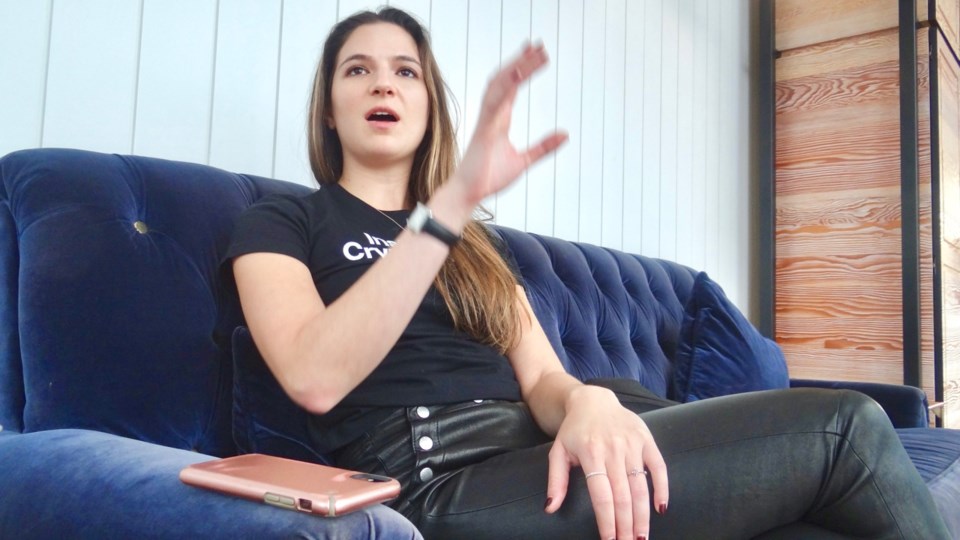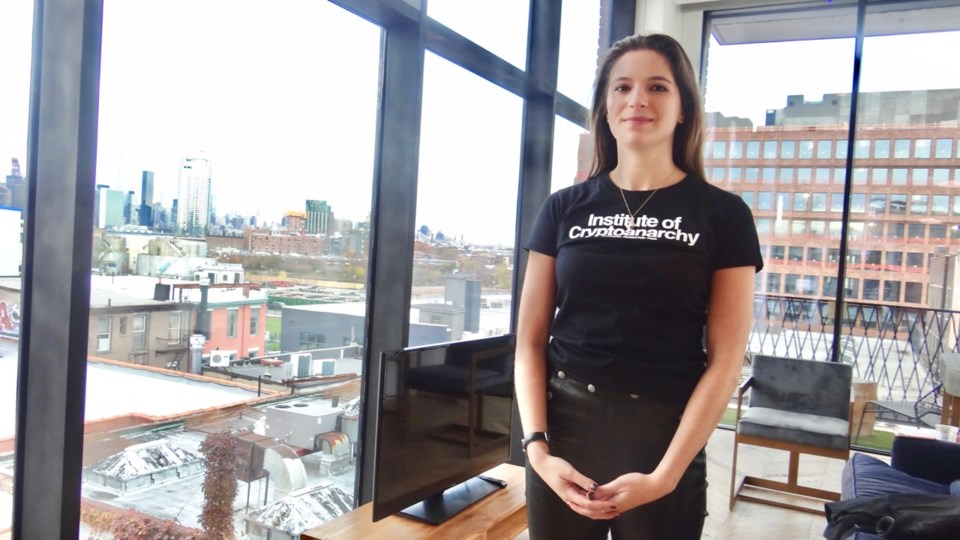How many people understand how technology actually works? The answer is very few. That's because only a minuscule number of experts (comparatively speaking) are needed in technology to create products for the masses. So when words like "blockchain technology" or "cryptocurrency" -- or more specifically, Bitcoin-- fall on the ears of those who do not understand it, the most common response is to eschew it as lofty, ethereal or conjecture! Because, well ain't nobody got time for tech mumbo-jumbo!
I should know, because that was me just four weeks ago. But what I discovered was that to understand blockchain was less about knowing "how it's done" and more about grasping "what it does." Similar to a car, microwave or the Internet, you can understand its purpose and how to to use with without ever having to understand how it works.
Of course, understanding the mechanics behind blockchains is entirely possible for the lay person, with a little research and resolve. But for now, let's look at what it does, with some help from Amanda Gutterman, chief marketing officer at ConsenSys, the largest and fastest-growing blockchain company in the country.
BK Reader had the honor of sitting down with Gutterman during Brooklyn Tech Week, as she explained the concept behind blockchain; why it's a big deal; and why understanding its function very much matters to you.
BK Reader: Here's my simple layman's understanding of blockchain: It is the "new internet," the emerging technology that decentralizes information, allows peer-to-peer negotiation, and standardizes the way we save, share and validate contracts between people. Please fill in the holes or correct me around what I am missing in that definition.
Amanda Gutterman: So let's go line by line, starting with, 'it's a new internet.' It's not a new Internet so much as a new layer that will be built onto the internet. It isn't necessarily a new type of skill people need to learn or something that looks really different that people will need to interact with. It's almost like a city that redoes its sewer system to work better. We're rebuilding the infrastructure. So it's not like we're using this type of Internet today, and we'll be using another type tomorrow. It's simply a change in functionality.
As far as 'decentralizing information...' What the web did for information was democratize information and communication. But it did that without a payments layer. It did it without making it clear how people would pay for content and monetize communications. So that's why you get a lot of media companies that are struggling; that's why there's the double spend problem where you can copy and paste information without people getting credit or getting paid. So the Internet democratized all this information, but we didn't actually do the same thing to money and transactions. And so what the Internet did for communications, blockchain is doing to value. And that's the way to think of it.
As far as contracts So right now, in order to have a business interaction, you and I pay a third party intermediary. For example, right now, you and I pay a bank to make a transaction. But what we're really paying them for is trust. What a blockchain does is allows people to trust each other without an intermediary. So people can have an interaction directly that is secure without having to pay a piper in the middle.

Photo: BK Reader
BKR: Why do you feel there is a need for blockchain technology?
AG: Right now the problem we're facing is that there are a few very patient, very deep-pocketed actors that are playing a great game, which is trying to get all the data in the world in one place and under their control, and I think that's the 800-pound gorilla of what's going on in this room. That's going to happen unless some system is successful in decentralizing some of that power. I think it's inevitable where we're going as a species in that we're trying to model reality as closely as we can in a digital form. But if we're going to inevitably create a digital model of all of reality, then it's terrifying to think that one actor, one corporation or one nation would have all of that data under its control. Because laws won't apply to that actor once they have that power. And there are a few entities in this world that are vying to become that. And unless we move from an infrastructure that is centralized and allows that kind of pooling, to a decentralized infrastructure that fragments that, that is what's going to happen. And currently blockchain is the only meaningful answer to that problem.
BKR: What is a blockchain exactly? Without getting into the detailed mechanics, can you concisely define what it is?
AG: A blockchain is just a next generation of a database. So each set of transactions online is packaged together as a block and those blocks are sequentially linked together as a chain. So every 15 seconds, there's a new block [created], and each block has a number and it refers to the state of the world at that given moment. And the cool thing about that is that, in the block we're in right now, there's a state of the world, state of the ledger around who owns what. And we can trace how that happened because we can look all the way back to the beginning.
"Right now the problem we're facing is that there are a few very patient, very deep-pocketed actors that are playing a great game, which is trying to get all the data in the world in one place and under their control, and I think that's the 800-pound gorilla of what's going on in this room."
BKR: How would you explain blockchain technology from the perspective of an everyday problem it solves for the average person, like for example, a regular East New York or Flatbush resident?
AG: I think it solves different problems for different people. There's no one-size fits all. One big thing that blockchain technology can do is solve the problem of not being in control of your financial destiny. Decisions about currency are being made by groups of human beings where, often, the rules are opaque and can change. With blockchain-based systems, all the rules are explicit, and you can see exactly what the mechanisms are for how money is being created and distributed. And you can't change them. So instead of opaque governance of money by certain groups of people, you get transparent, egalitarian governance by code. It gives people control over their financial lives and transparency into how financial systems work.
BKR: What does Consensys do?
AG: Consensys is building the tools and software that enable blockchain systems to grow. We're doing that focused on the Ethereum blockchain which is the most robust blockchain that exists today. We do that in a lot of different ways: We have training programs that help people learn how to build blockchain tools. We build a bunch of blockchain tools and applications ourselves-- from music to supply chain, reference data, video sharing, journalism; we have a use case for pretty much anything you can think of. And then we do consulting and joint venturing and some work for governments.
BKR: What's an example of how blockchain can best help underserved and under-resourced communities?
AG: I think blockchain is mostly for underserved communities. Ten years ago, when you explained Bitcoin in a room full of Americans that are financially empowered, there was always a question of, 'Well, I find our financial system basically works; so why do I need this?' [Bitcoin users] highlight the use case for people in developing countries. If you have a government that is just printing money that's devaluing your currency so that you have to bring a whole paper sack full of money to the grocery store to buy a loaf of bread, that's a problem. And blockchain-based currencies are a solution to that. People aren't able to get identification, open bank accounts, build up credit when they don't have access to a high-functioning government. But they can do all those things on the blockchain. So, I think it's going to allow people in developing countries or who live in places that have unstable governments to be able to bootstrap their financial inclusion in a way that they can benefit from economically.
BKR: But what about the underserved communities right here in Brooklyn?
AG: Well, first you could create a local currency that you can use in your community. There was actually one created by the chief strategy officer of Consensys in Baltimore called the Baltimore B Note that came before Bitcoin. You could start transacting in your community with a currency that's based on a point system that could give people discounts to buy local products. You could totally do that and program the conditions you wanted into the blockchain so that everybody could get a discount from buying local goods. Another one is-- and there's some regulatory issues around this still, but-- energy entrepreneurship! With the blockchain, you could attach a solar panel from your roof, and you could monetize the solar panel by selling that energy to your neighbors. This technology makes it possible to harvest your own energy and sell it peer-to-peer to your neighbors.
BKR: Do you believe that the widespread use of Blockchain technology is imminent?
AG: I don't want to get complacent and say, 'It's inevitable; it's gonna win; it's gonna be dominant.' I think we all need to think really hard about how we're going to get from where we are to that total adoption. I think we need to think really hard about how we're telling our story; I think we need to make sure people understand how to use it and what it does; I think we need to get a lot better at user experience, so people can interact with it who are not technical. But no, I don't think it is inevitable that blockchain succeeds. I don't think it's inevitable that decentralized systems win over centralized systems...
But I hope they do... Because I think that would be a lot more fun than having a centralized overlord.




